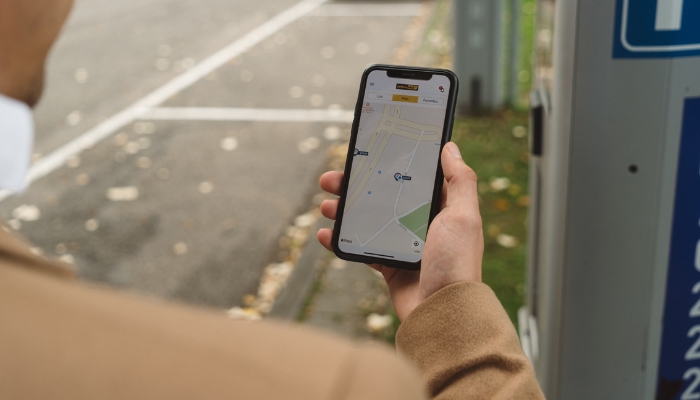
Navigating the labyrinth of skip tracing laws feels much like a complex puzzle, where every turn reveals a new piece. You’re working to locate someone who doesn’t want to be found, all while staying within the confines of the law. These laws, designed to protect privacy and prevent harassment, are crucial in the process. They guide your actions and influence your strategies.
Skip tracing laws regulate the methods used to locate individuals, focusing on privacy and data protection. These laws vary by region but typically include restrictions on information gathering to prevent harassment and protect personal data. Compliance with these laws is essential for legal and ethical skip tracing practices.
Ignoring them’s not just unethical, it’s illegal. So as you delve into the world of skip tracing, understanding these laws becomes your compass, helping you steer clear of legal troubles. It’s a challenging task, but one you can master with the right knowledge.
Understanding Skip Tracing
To fully grasp the concept of skip tracing, it’s important to understand skip tracing meaning. Skip tracing is a method used primarily by debt collectors, private investigators, and law enforcement agencies for tracking down individuals who cannot be located through traditional means. This process, often referred to as ‘skip tracing,’ involves locating these ‘skips’ by researching public records and other data sources.
However, this practice isn’t without its boundaries. Privacy laws play a crucial role in governing what information can be accessed and how it can be used – a factor that professional skip tracers must navigate with care. Violations of these laws can lead to severe penalties, so it’s integral that skip tracers respect these rules.
Skip tracing services can also help businesses locate hard-to-find individuals, but they too must adhere to stringent privacy laws. They’ve to balance the aggressive pursuit of finding someone with respecting that person’s right to privacy.
Overview of Skip Tracing Laws

Skip tracing, a method used to locate a person’s whereabouts for various purposes, is governed by a complex web of laws and regulations.
This overview will delve into the federal laws that oversee skip tracing, highlight state-specific laws and regulations, and touch upon the international laws relevant to this practice.
Federal Laws Governing Skip Tracing
At the federal level, two primary laws regulate the practice of skip tracing: the Fair Credit Reporting Act (FCRA) and the Fair Debt Collection Practices Act (FDCPA).
- Fair Credit Reporting Act (FCRA): This act is crucial for skip tracers, especially when they utilize credit reports to locate individuals. The FCRA mandates that certain credit header information can be used in skip tracing. However, it restricts access to full credit reports to specific permissible purposes, ensuring the privacy and security of personal information. Skip tracers must be aware of these limitations to avoid legal repercussions.
- Fair Debt Collection Practices Act (FDCPA): This act primarily affects skip tracers working for or with debt collection agencies. It outlines the legal methods to contact debtors and prohibits deceptive practices. For instance, using false pretences to obtain information or contacting a debtor’s business associates or family members under certain conditions can be deemed illegal.
State-Specific Laws and Regulations
In addition to federal laws, skip tracers must navigate a patchwork of state-specific laws. These laws can vary significantly, affecting how skip tracers conduct public records searches, access criminal records, or use phone number databases.
For example, some states have stringent privacy laws that limit access to utility bills or employment records, which are often crucial in skip tracing.
International Laws for Skip Tracing
When skip tracing crosses borders, international laws come into play. Different countries have their own legal frameworks governing data privacy, access to public databases, and the use of personal information.
For instance, the European Union’s General Data Protection Regulation (GDPR) imposes strict rules on data processing. Which can impact how skip tracers operate internationally. Especially when dealing with email addresses or social security numbers of EU citizens.
In conclusion, understanding the intricate legal landscape of skip tracing is vital for professionals in this field. From adhering to the FCRA and FDCPA at the federal level to navigating state-specific and international laws, compliance is key to conducting ethical and legal skip tracing. This knowledge not only helps in avoiding legal pitfalls but also ensures the respect of individuals’ privacy and rights in the process of skip tracing.
Legal Methods in Skip Tracing

Skip tracing, the art of locating a person’s whereabouts involves various techniques and resources. While the goal is to find the individual, it’s imperative to adhere to legal methods during the process.
This section explores the legalities surrounding the use of public records and legal databases, credit reports, social media and online research, and phone calls and contact strategies.
Public Records and Legal Databases
One of the most common and legal methods in skip tracing is the use of public records. These records, which include property records, vehicle registrations, and court documents, are accessible to the public and provide valuable leads. Legal databases offer a consolidated platform for accessing these records.
However, skip tracers must be aware of the legal landscape in which they operate, as some jurisdictions may have restrictions on accessing certain types of public records, such as divorce records or financial records.
Corporate searches and employment records are also valuable, but they come with their own set of legal considerations. For instance, accessing someone’s employment history without their consent can be a violation of privacy laws in some states.
Credit Reports: Legal Considerations
Using credit reports in skip tracing is a sensitive area, governed by the Fair Credit Reporting Act (FCRA). Skip tracers can use credit header information, which includes basic details like name, address, and social security number.
However, accessing a full credit report requires a permissible purpose as defined by the FCRA. This means that skip tracers must have a legitimate reason, such as debt recovery or legal proceedings, to access more detailed credit information.
Social Media and Online Research: Privacy Concerns
In today’s digital age, social media and online research are invaluable tools for skip tracers. Platforms like Facebook, LinkedIn, and Twitter can provide current information about a person in question, including their current address or employment status. However, this method raises significant privacy concerns.
Skip tracers must ensure they do not infringe on an individual’s privacy rights, which can vary depending on the location and the platform’s user agreement. For instance, using information obtained under false pretences or through private profiles could lead to legal issues.
Additionally, internet searches can lead to a wide variety of information sources. While basic internet searches are generally legal, the use of this information must be in compliance with privacy laws. Advanced search capabilities and database searches can enhance the effectiveness of online research, but they must be used responsibly and legally.
Phone Calls and Contact Strategies: Legal Boundaries
Phone calls are a traditional yet effective method in skip tracing. Accessing phone number databases can help locate an individual’s contact information. However, there are legal boundaries to consider, especially under the Fair Debt Collection Practices Act (FDCPA) for debt collectors. This includes restrictions on calling times, the frequency of calls, and the disclosure of the caller’s identity.
When contacting neighbors or associates of the subject, skip tracers must be cautious not to reveal the purpose of their inquiry or disclose sensitive information about the person they are trying to locate. This is particularly important in cases involving bail bondsman or repossession agents, where the nature of the inquiry is sensitive.
In conclusion, while skip tracing is a powerful tool in locating individuals, it is bounded by various legal constraints. Adhering to these laws not only ensures the legality of the skip tracing process but also upholds the ethical standards of the profession. Whether using public records, conducting online research, accessing credit reports, or making phone calls. A legal and respectful approach is paramount to successful and responsible skip tracing.
Ethical Considerations in Skip Tracing

Skip tracing, while a vital tool in various fields, comes with its own set of ethical considerations. It’s crucial for professionals in this field to balance their objectives with respect for individual privacy and adhere to high standards of professional conduct.
Respecting Privacy and Confidentiality
One of the core ethical principles in skip tracing is respecting the privacy and confidentiality of the individuals being traced. This means using information like property records, phone number databases, or credit reports responsibly.
For instance, while it’s legal to access public records, using this information should not infringe on an individual’s right to privacy.
Similarly, when dealing with sensitive information, such as financial records or criminal history, it’s essential to ensure that this data is handled with the utmost confidentiality and used only for legitimate purposes.
Ethical Dilemmas in Skip Tracing
Skip tracers often face ethical dilemmas, especially when the line between legal and ethical practices becomes blurred. For example, while using social media profiles for information is legal, friending individuals under false pretenses to gain access to their private information crosses an ethical boundary.
Similarly, while making phone calls to gather information is a standard practice, repeatedly calling or harassing the subject or their acquaintances is not only unethical but could also be illegal under laws like the Fair Debt Collection Practices Act (FDCPA).
Another ethical dilemma arises in the use of private databases. These databases can offer a wealth of information, but how much of this should be used, and for what purposes, can be a grey area. Ethical skip tracing requires a balance between the need to locate an individual and the respect for their privacy and rights.
Professional Conduct and Reputation Management
For skip tracers, maintaining professional conduct is not just about adhering to legal standards but also about building and preserving a reputation for ethical practice. This involves transparent and honest communication with clients, especially regarding the methods used and the sources of information.
For instance, if using internet searches or public records searches, it should be clear to clients what methods are being employed and why.
Moreover, professional conduct extends to how interactions are handled, whether it’s with the subject of the skip trace, their associates, or clients. This means avoiding deceptive practices, respecting the emotional and privacy concerns of individuals involved, and ensuring that all actions can stand up to ethical scrutiny.
In conclusion, ethical considerations in skip tracing are as important as legal ones. Respecting privacy and confidentiality, navigating ethical dilemmas with integrity, and maintaining professional conduct are key to being a responsible and trusted skip tracer. These practices not only ensure compliance with laws but also help in building a reputation for ethical and effective work in the field of skip tracing.
Privacy Laws and Skip Tracing
Understanding privacy laws is crucial when you’re involved in skip tracing, as they dictate what information you can legally access and how you can use it, and sometimes they may even suggest avoiding skip tracing under certain conditions. Adherence to privacy statutes isn’t only an ethical obligation but also a legal necessity.
- Privacy Laws and Skip Tracing: Privacy laws often limit the methods skip tracers can use to locate a person. Misuse of personal information could lead to hefty fines or legal issues.
- Adherence to Privacy Statutes: As a skip tracer, you must adhere to all applicable privacy laws. This includes not only domestic laws, but also international ones if you’re tracing someone overseas.
- Legal Issues: Non-compliance with privacy laws can lead to serious penalties, including fines and imprisonment. Ignorance of these laws isn’t a valid defense.
To avoid legal complications, it’s important to stay updated with the changing landscape of privacy laws. Professional training and continuous education can help you navigate these complex waters. Remember, as a skip tracer, you’re not above the law. Respect the privacy of the individuals you’re tracing and always operate within the confines of the law.
Consequences of Law Violations
If you violate skip tracing laws, you’re likely to face severe consequences, including hefty fines and potential jail time. These stern penalties exist to protect the rights of individuals and maintain the integrity of legal proceedings.
When skip tracing laws are breached, law enforcement agencies have the authority to prosecute. Legal professionals, such as skip tracers, private investigators, or debt collectors, could find themselves entangled in a legal web, facing charges that could tarnish their reputations and end their careers.
The consequences of law violations can extend beyond the legal sphere. Public exposure of such violations can lead to reputational damage, loss of clients, and even bankruptcy for businesses. You might also be subjected to civil lawsuits from those whose rights were infringed upon.
It’s essential to understand that every action in the skip tracing process is potentially subject to scrutiny. With today’s advanced technology, it’s becoming increasingly difficult to hide illegal activities.
In conclusion, violating skip tracing laws can lead to grave consequences. It’s not something you’d want to risk, whether you’re an individual or a business entity.
Skip Tracing in Different Industries
Skip tracing is a versatile tool used across various industries, each with its unique applications and methodologies. From debt collection to law enforcement, private investigation, and real estate, the art of locating individuals or assets plays a crucial role. This section delves into how skip tracing is utilized in these diverse fields.
Debt Collection and Financial Services
In the world of debt collection and financial services, skip tracing is an essential practice. It involves locating individuals who have defaulted on loans or have outstanding debts.
Professionals in this field often rely on credit reports, employment records, and financial records to find debtors. Collection agencies use skip tracing to track down individuals for the purpose of recovering unpaid debts, making it a critical tool in the consumer debt collection decision process.
The use of credit bureau data, bank records, and credit card applications can provide current contact information or clues about a debtor’s whereabouts. Additionally, debt collection agencies often employ advanced search capabilities and database searches to enhance their skip tracing efforts.
However, they must operate within the confines of laws such as the Fair Debt Collection Practices Act (FDCPA). Ensuring that their methods are both legal and ethical.
Legal and Law Enforcement Applications
Skip tracing in the legal and law enforcement sectors serves a different purpose. Here, it’s used to locate individuals for legal proceedings, such as serving legal documents or as part of criminal investigations.
Law firms and police detectives utilize skip tracing to find witnesses, defendants, or other relevant individuals. They often access public records, criminal records, and court documents to gather information.
In criminal cases, law enforcement agencies may use skip tracing to track down suspects or individuals with criminal history. This might involve coordinating with bail bondsmen or repossession agents. The legal framework governing these activities is stringent, ensuring that the privacy rights of individuals are not violated during the process.
Private Investigation and Personal Searches
Private investigators use skip tracing for a variety of reasons, ranging from finding missing persons to conducting background checks. In personal searches, skip tracing can help locate long-lost family members, childhood friends, or university friends. Private detectives often use a combination of public databases, social media profiles, and networks of contacts to gather information.
In this industry, the ethical considerations are paramount. Private investigators must balance their need to find information with respect for individual privacy. Techniques like internet searches, phone calls, and email addresses tracking are common, but they must be conducted within legal and ethical boundaries.
Real Estate and Asset Recovery
In the real estate industry, skip tracing is used for asset recovery and locating property owners. Real estate agents might use skip tracing to find owners of abandoned or dilapidated properties for potential sales or development opportunities.
This involves researching property records, address history, and sometimes even utility bills to establish the current owner’s contact information.
Asset recovery also involves locating assets for repossession in cases of defaulted loans or legal judgments. Professionals in this field use skip tracing to find not just people but also physical assets like vehicles or machinery. Vehicle registrations, loan applications, and financial institution records are often key resources in these searches.
In conclusion, skip tracing is a multifaceted tool with applications across various industries. Each field employs specific methods and resources, tailored to their unique requirements. Whether it’s recovering debts, serving legal documents, conducting private investigations, or recovering assets in real estate, skip tracing remains an invaluable practice.
However, regardless of the industry, professionals must always navigate the delicate balance between effective tracing and adherence to legal and ethical standards.
Best Practices for Legal Skip Tracing
To ensure your skip tracing efforts remain within the law, it’s crucial to adhere to certain best practices. Not only will this help you avoid legal consequences, but it’ll also make your investigation services more effective and respected.
Here are three best practices for legal skip tracing:
- Respect Privacy Rights: Always remember that skip tracing laws are in place to protect individuals’ privacy rights. Never intrude on someone’s personal life or invade their privacy in an illegal or unethical manner. Always balance the need for information with respect for privacy.
- Use Legitimate Contracts: Ensure you have the proper legal contracts and permissions in place before starting your investigation. This includes consent from the individual being traced, or a lawful reason for conducting the search without their knowledge.
- Stay Informed: Skip tracing laws can change. Make sure you’re up-to-date with the latest regulations and best practices for legal skip tracing. This includes local, state, and federal laws, as well as any relevant international laws if you’re tracking someone across borders.
Conclusion
You’ve navigated the intricate landscape of skip tracing and its governing laws. Remember, while it’s a powerful tool for locating individuals, you must respect privacy laws. Violations can lead to serious consequences.
Always adhere to best practices to ensure your skip tracing efforts are legal and ethical. Staying informed and vigilant about the law helps protect you, your business, and the individuals involved, ultimately ensuring a more effective and efficient skip tracing process.
FAQs on Skip Tracing
What Laws Govern Skip Tracing Activities?
Skip tracing activities are governed by a variety of laws, primarily focusing on privacy and consumer rights. Key federal laws include the Fair Credit Reporting Act (FCRA) and the Fair Debt Collection Practices Act (FDCPA).
These laws regulate how personal information can be obtained and used, especially in contexts like debt collection and background checks. Additionally, there are state-specific laws and international regulations that may apply, depending on the location of the skip tracer and the subject.
Can Skip Tracing Be Done Without Breaking the Law?
Yes, skip tracing can be conducted legally by adhering to relevant laws and regulations. Legal methods include using public records, credit reports (with permissible purpose), and conducting internet searches. It’s crucial for skip tracers to stay informed about the legal landscape, including privacy laws and industry-specific regulations, to ensure their practices are compliant.
How Do Privacy Laws Affect Skip Tracing?
Privacy laws significantly impact skip tracing by setting boundaries on what information can be collected and how it can be used. Laws like the FCRA restrict access to certain personal data without consent, and the GDPR in Europe imposes even stricter controls.
Skip tracers must navigate these laws carefully, ensuring that their methods of collecting and using data, such as through phone number databases or social media profiles, respect individual privacy rights and comply with legal standards.